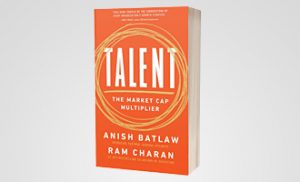Speaker News
AI and the Future of Humankind
Ray Hammond is Europe’s most experienced and most widely published futurologist. As faster technological innovation, globalisation and environmental challenge continue to be priorities; Ray explains how these massive challenges will affect our futures, the way we do business and the far reaching implications socially, economically
and politically.
It has recently become a hot topic in the media to speculate about the future of humankind in the light of predicted increases in the power of artificial intelligence. Social media, quality newspapers and thoughtful magazines are regularly carrying interviews with well-known experts who warn about the coming perils of strong artificial intelligence and how it may endanger the future of humankind. Those voicing public concern about this issue recently include Professor Stephen Hawking, Elon Musk and Bill Gates.
And the Israeli historian Noah Yuval Harari has captured the zeitgeist perfectly with his two best-selling books Sapiens and Homo Deus. These two wonderfully written polemics examine humankind’s relationship with technology and how “dataism” may become the new mass religion of the future. Yuval thinks it likely that humans will come to value data and the organisation of data as our primary goal and humankind’s greatest achievement.
But worrying about whether clever machines will ultimately become our successor species isn’t a new topic. Futurists and science fiction writers have grappled with the idea for well over a century and I first started thinking about this possibility back in the mid-1960s.
In my 1986 book The Modern Frankenstein I suggested that through the developments of artificial intelligence and genetic engineering humans are gaining powers that might be considered god-like. I titled my final chapter “Man Becomes God” and I suggested that eventually humans will merge with super-strong artificial intelligence to form a new, non-biological successor species which will then head out to colonise the universe.
I still think this is the logical outcome of our human desire to innovate and create new technology. But it’s not going to happen anytime soon. Even today’s most powerful artificial intelligence is still astonishingly stupid when assessed on the standards of “general intelligence” and it will be another few decades before we will approach the point at which AI becomes as capable of problem solving as humans. Of course, after that point, all bets are off.
MORE NEWS
-

BUY WOMEN BUILT
Serial entrepreneur and fantastic business speaker Sahar Hashemi continues her phenomenal success both as a business creator, strategic thinker, creative leader and change-maker by launching BUY WOMEN BUILT. Any initiative… Read more -

Brian McBride Appointed President of the CBI
Brian McBride’s compelling career journey and business leader credentials have no doubt led him to being appointed as next President of the CBI. His wealth of entrepreneurial experiences and global… Read more -

UNDERSTANDING THE TRUE IMPACT OF BUSINESS TALENT
When globally-renowned business advisor Dr Ram Charan announced his upcoming book was called Talent: The Market Cap Multiplier, we couldn’t wait to get our hands on a copy. We all… Read more -

FASHION DECLARES A CLIMATE EMERGENCY
Sustainable business expert Safia Minney is the driving force behind “Fashion Declares a Climate, Ecological & Social Emergency”, a brand new initiative aiming to make ground breaking change across the… Read more

